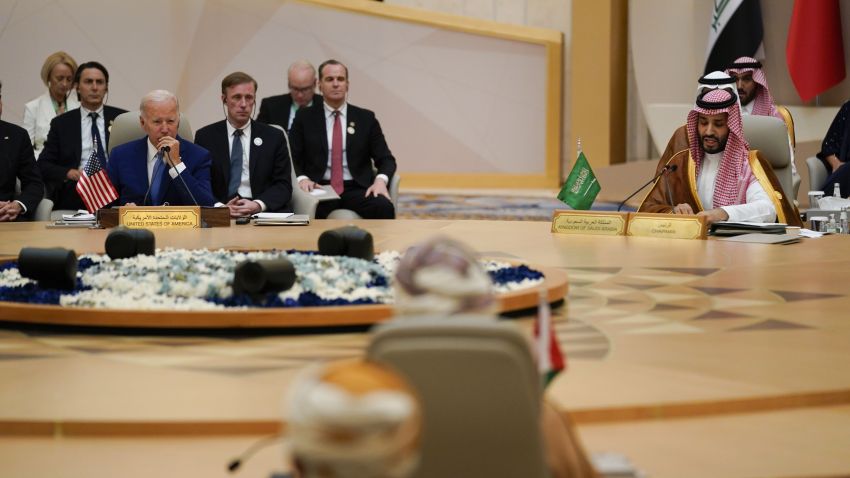The Organization of the Petroleum Exporting Countries Plus, or OPEC+, announced last week that it will cut oil production by 2 million barrels per day starting in November. The decision appears to be an attempt to drive up the price of international crude oil, which fell to $80 in September after coming close to an all-time high of $147 in March after Russia’s invasion of Ukraine. OPEC+ countries, including Saudi Arabia, the United Arab Emirates and Russia, said the decision was necessary to help them recover losses and stabilize the global energy market. The U.S. responded by framing the cuts to oil production as a nakedly self-serving move that will benefit Russia, singling out Saudi Arabia as the ringleader of that collective effort.
President Joe Biden condemned the decision in a statement released by the White House on Oct. 5, saying that he was “disappointed by the short-sighted decision by OPEC+ to cut production quotas while the global economy is dealing with the continued negative impact of Putin’s invasion of Ukraine.” White House Press Secretary Karine Jean-Pierre went a step further, saying it “is clear OPEC+ is aligning with Russia.” Secretary of State Antony Blinken said that Washington is reviewing its options regarding its relationship with Riyadh. Three Democrats in Congress, including Sen. Bob Menendez of New Jersey, called on the Biden administration to withhold its military support to Saudi Arabia and the UAE. The fate of a meeting of the U.S.-Gulf Cooperation Council Working Group on Integrated Air and Missile Defense, which was scheduled to hold next week in Riyadh, now hangs in the balance. Earlier today, a White House official said that Biden is re-evaluating the relationship with Saudi Arabia, which could include blocking arms sales to Riyadh.
Many in Biden’s ruling Democratic Party see the announcement by OPEC+ as a deliberate attempt to damage their electoral prospects in November’s midterm elections, as voters are likely to blame Biden and Democrats for any resulting increase in gas prices. Such a price hike would also deepen criticism of Biden’s visit to Saudi Arabia in July, during which he asked Riyadh to increase oil production amid volatility in energy markets following Russia’s war in Ukraine.

